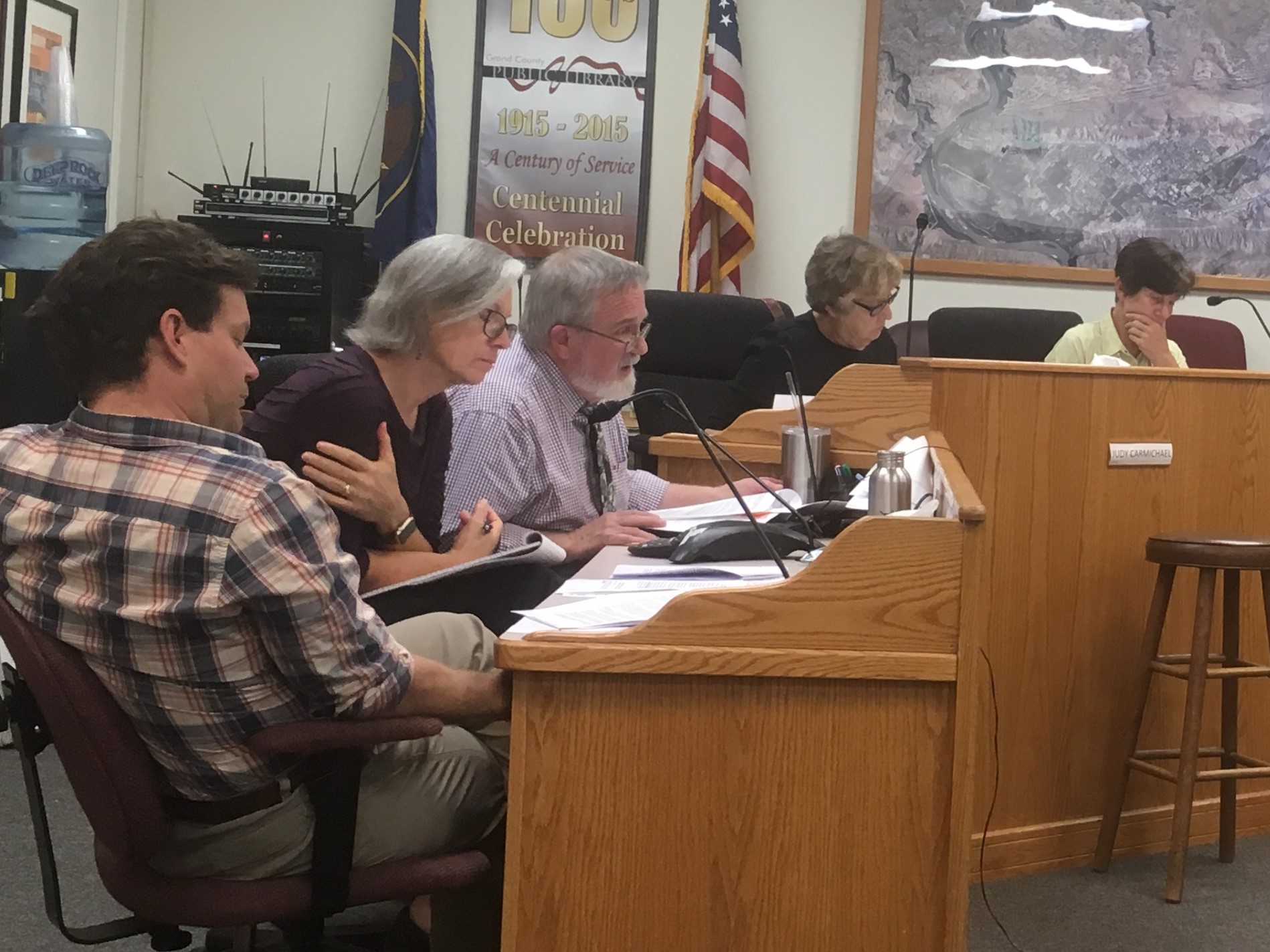Some information may be outdated.
Grand County will not see a vote on its proposed change of government in 2019, after missing the approval deadline imposed by state law.
“The wheels came off,” said Bob Greenberg, member of the Grand County Change in Form of Government Study Committee.
Since March, the study committee undertook the task of recommending a form of government for Grand County that adheres to new state law. Passed during the 2018 session of the Utah Legislature, House Bill 224 made Grand County’s current form of government out of compliance.
After months of public outreach and numerous long meetings, the committee forwarded its formal recommendation as to what Grand County’s new form of government should be to Grand County Attorney Christina Sloan for approval on Aug. 12.
The proposal, titled “Optional Plan for Grand County Government,” recommends a five-member council composed of three seats elected at-large and two district seats. District One contains the relatively urban area within Moab, while District Two encompasses the more rural areas.
The committee had hoped that the proposal could be approved by the county attorney in time to be placed on the general election ballot for voters to approve or reject by a simple majority during the general election on Tuesday, Nov. 5, 2019.
However, the county attorney rejected the plan, submitting a memo that noted four provisions of the Optional Plan that violate Utah law.
Committee members at the Sept. 6 meeting were clearly shocked that their work would not be moving towards a vote this year.
“Many of us are disappointed that there are some items to fix and it will not make the ballot this year. Luckily, I think the items to fix are pretty trivial. And we can fix them quite easily,” committee member Marcy Till said.
“Christina Sloan is a meticulous reader of the law,” said Greenberg, “She actually looks at the law. And she found errors: three of them are more or less of terminology. One is a little more substantive.”
While the issues to be corrected might be minor, the delay in moving forward troubled committee member Jeramy Day.
“You’re telling me that a county attorney, an elected official, is the point of contact and the final say on whether or not our work goes forward? Is that legal?” he asked attorney Gavin Anderson, a change of government consultant retained by the committee.
“In the statute, there’s no way to appeal her decision,” said Anderson.
“I think Christina has done a good job,” Anderson added.
The three issues noted by the county attorney were that the Optional Plan specifies a specific date for the Optional Plan approval election, prevents the removal of elected officials by any means other than judicial removal, interferes with the separation of powers by allowing the proposed council to influence the executive branch, and usurps its authority by drawing the new district boundaries.
Some of the issues brought up by the county attorney were due to differences between Anderson and Sloan in how to interpret state and federal law.
“One of the issues with the Grand County plan of government is that it allowed the removal from office of elected officials by removal election,” Anderson said, referring to the older form of government now blocked by HB 224.
“Christina and I have had a lengthy discussion about this issue,” said Anderson. “Ms. Sloan’s point was that this part of the plan is contradictory with existing state statute. My position is the statute regarding removal for mental disability is not constitutional.”
A more substantive objection raised by the county attorney was that the proposed plan specified an election date for the plan to be voted upon. The county attorney raised objections that this was outside the authority of the study committee.
“The cure is very simple: just eliminate the date,” said Anderson.
Greenberg commented that the problem is with HB 224, the state law mandating the change of government.
“This whole process was forced upon us by the state legislature,” he said.
That sentiment was shared by other committee members at the meeting.
Committee member Till broke from the discussion of specific changes to remark, “I don’t know how we get this information back to the legislators about how faulty the bill is, but that’s important.”
Ultimately, the change of government committee will revise their proposed plan and resubmit it to the county attorney.
“And if she comes back with a favorable report the second time around,” County Clerk and Auditor Chris Baird said, “it’ll run in the next election.”
“Some people are very disappointed, some are happy,” said Bob Greenberg, summing up the situation. “That’s politics for you.”
Plan misses deadline, will not be on this year’s ballot
Appreciate the coverage? Help keep local news alive.
Chip in to support the Moab Sun News.





